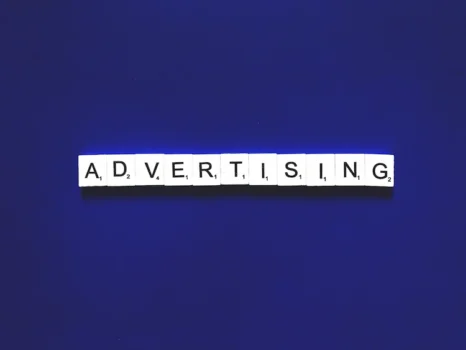
In In re Opinion No. 735 of the Supreme Court Advisory Committee on Professional Ethics, the Supreme Court of New Jersey held that the practice of purchasing a competitor’s name as a keyword does not, in itself, constitute a violation of the Rules of Professional Conduct (RPCs). However, the Court will now require that attorneys employing this strategy include a clear and conspicuous disclaimer on the landing page of their website when a user clicks on such a paid advertisement.
Facts of the Case
The case centered on whether it is permissible under the RPC for an attorney or law firm to purchase a competing attorney’s or law firm’s name as a keyword from internet search engine providers, such as Google, Yahoo, or Bing. Specifically, whether John Doe, Esq., may purchase the name of Jane Smith, Esq., as a keyword such that when a user searches for “Jane Smith,” a sponsored link to John Doe’s website appears prominently above organic search results for “Jane Smith.”
The Advisory Committee on Professional Ethics (ACPE) concluded that the purchase of another lawyer’s or law firm’s name in competitive keyword advertising does not violate the RPCs. The New Jersey Supreme Court subsequently granted petitions from the New Jersey State Bar Association and the Bergen County Bar Association, for review of Opinion 735 pursuant to Rule 1:19-8. After oral argument in November 2020, the Court remanded the matter and appointed a Special Adjudicator to make specific factual findings about the mechanics of keyword searches and their capacity to mislead.
The Bar Associations participated in the remand proceedings, which included testimony by three experts and feedback from members of the bar whose names or firm names had been purchased as keywords by competitors. The Special Adjudicator submitted his report in June 2024. He described how search engine algorithms determine ad placement based on various factors, including bid amounts, keyword relevance, and ad quality scores. He noted that ads typically appear above organic results, and while marked with identifiers like “Ad,” “Sponsored,” or “Promoted,” their visibility and user recognition vary. Ultimately, the Special Adjudicator found that the current RPCs were sufficient to contend with any allegations of deception, dishonesty, fraud, or misrepresentation alleged via competitive keyword purchase of attorneys’ or law firms’ names and therefore recommended no changes to the RPCs.
NJ Supreme Court’s Decision
The New Jersey Supreme Court affirmed, holding that the practice of purchasing a competitor’s name as a keyword does not, in itself, constitute a violation of the RPCs. However, going forward, attorneys employing this strategy must include a clear and conspicuous disclaimer on the landing page of their website when a user clicks on such a paid advertisement.
In reaching its decision, the New Jersey Supreme Court determined that the purchase of a keyword — that is, an attorney’s attempt to raise his profile in the sponsorship section of a search result — is not in and of itself a communication subject to RPC 7.1 or RPC 7.2. Rather, it is a form of proximity marketing, whereby businesses intentionally position themselves near a market leader to benefit from their overflow customers.
“Proximity marketing is not automatically a communication; nor is it intrinsically deceitful or fraudulent. Attorneys who position themselves next to a more successful competitor, whether digitally or physically, may find themselves in a position to offer services to clients that their more successful counterpart turned away or could not retain; such is the nature of competitive advertising,” Justice Noriega wrote. “So long as the purchasing of the keywords does not create a false or misleading suggestion that the advertiser is affiliated with the object of the search, efforts made to enhance visibility do not amount to communication under RPC 7.1 and 7.2.”
The New Jersey Supreme Court went on to find that purchasing the proper name of an attorney or a law firm as competitive keywords also does not violate RPC 8.4(c), which establishes that it is professional misconduct for a lawyer to “engage in conduct involving dishonesty, fraud, deceit or misrepresentation.” Justice Noriega wrote:
Given the absence of evidence showing any intent to mislead, the widespread and accepted nature of keyword advertising, and the functioning of modern search engines, we conclude that the practice of purchasing a competitor’s name as a keyword — without more — does not constitute a violation of RPC 8.4(c). Our profession’s commitment to honesty and dignity does not require insulating lawyers from competition where no misrepresentation occurs. It requires, instead, a clear focus on client protection.
The New Jersey Supreme Court made it clear that it was not holding that competitive keyword advertising can never be misleading or deceitful under RPC 8.4(c). According to the Court, “Variations may exist that we cannot now anticipate, and attorneys remain bound by their ethical obligations in all forms of advertising.”
Finally, the New Jersey Supreme Court held that attorneys who wish to use this practice must use the following disclaimer:
You arrived at this page via a paid advertisement on [insert name of search engine provider] through paid keyword search results. This website and the legal business it describes are affiliated only with [insert name of purchasing attorney] and the other attorneys referenced within this website.
According to the Court, the above disclaimer will permit any consumer, as well as the competitor attorney and firm whose name is being used, to understand how this sponsored ad appeared in a search results page.
